Indigenous Governance Database
Grand Traverse Band of Ottawa and Chippewa Indians
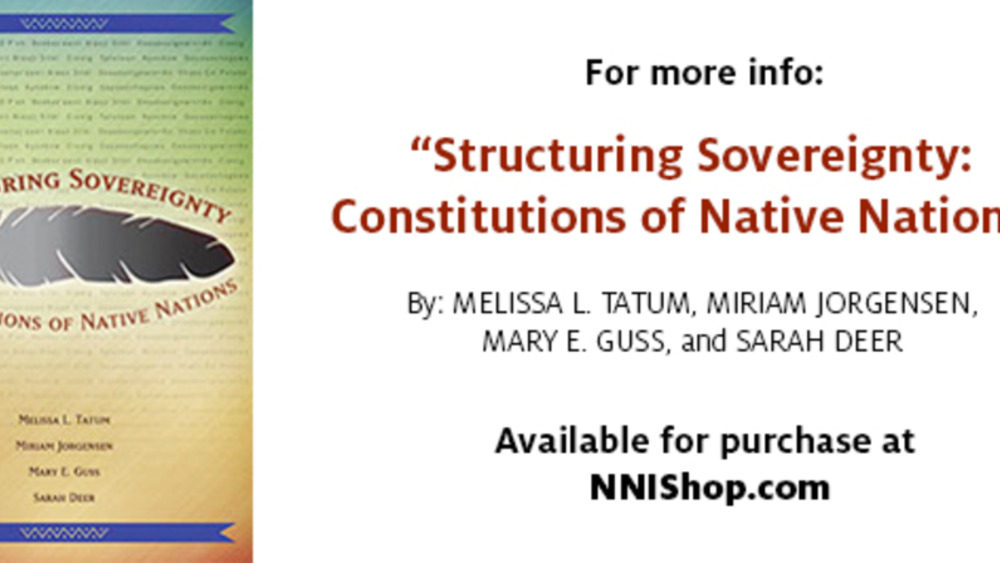
Grand Traverse Band of Ottawa and Chippewa Indians Constitution
Location: On the upper portion of the lower peninsula of Michigan Population: 4102 Date of Constitution: 1988 Key Facts: One of the first casino tribes
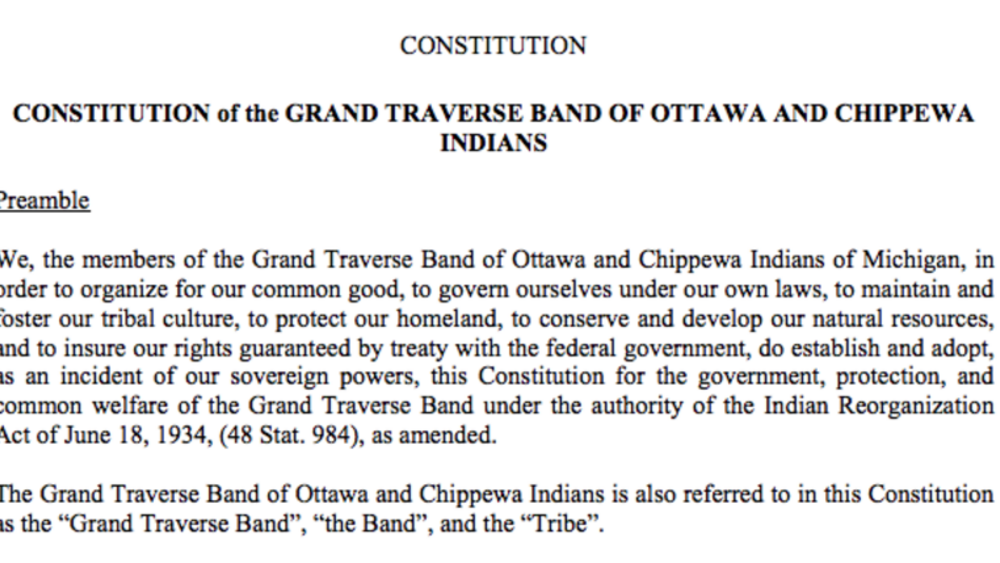
Grand Traverse Band of Ottawa and Chippewa Indians: Preamble Excerpt
Preamble: We, the members of the Grand Traverse Band of Ottawa and Chippewa Indians of Michigan, in order to organize for our common good, to govern ourselves under our own laws, to maintain and foster our tribal culture, to protect our homeland, to conserve and develop our natural…
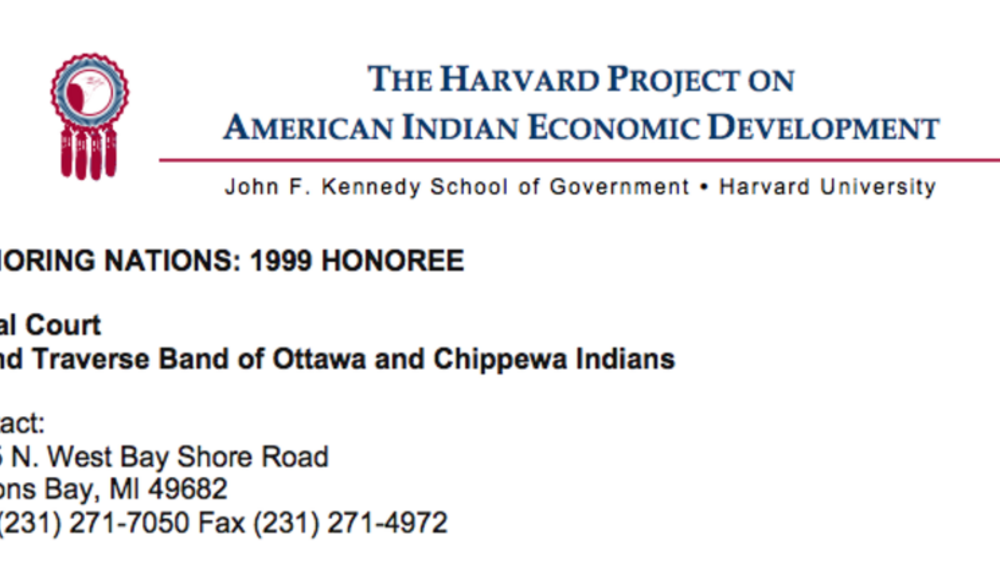
Grand Traverse Band Tribal Court
Constitutionally separated from the political influences of government, the Tribal Court hears more than 500 cases per year, and utilizes "peacemaking" to mediate in cases in which dispute resolution is preferred to an adversarial approach. The Court adjudicates on such issues as child abuse,…
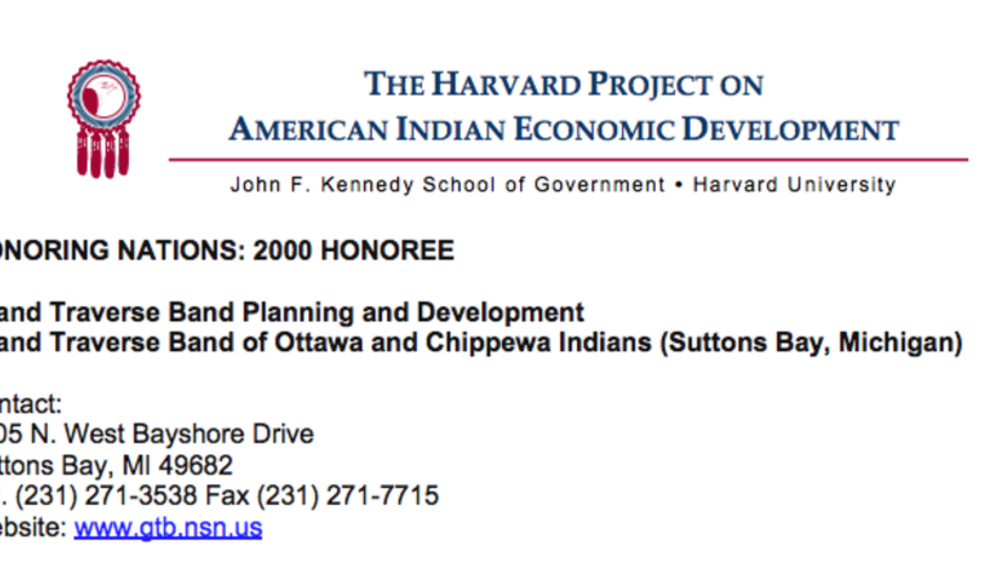
Grand Traverse Band Planning and Development
Faced with a growing land base and an increasing number of visitors to the reservation, the Grand Traverse Band Tribal Council established the Planning and Development Department in 1997 to build capacity within the community to accommodate new needs. The Department addressed its challenge by…
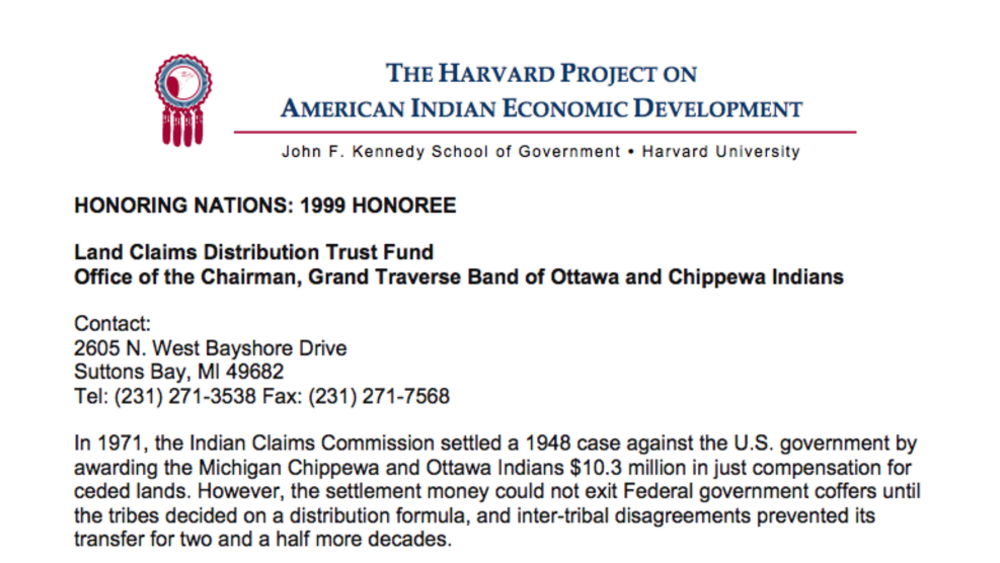
Grand Traverse Band's Land Claims Distribution Trust Fund
After 26 years of negotiation with the US government over how monies from a land claims settlement would be distributed, the Band assumed financial control over the settlement by creating a Trust Fund system that provides annual payments in perpetuity to Band elders for supplementing their social…

Eva Petoskey: Empowering Good Leadership Through Capable Governance: What My Leadership Experience Taught Me
Eva Petoskey, citizen and former council member of the Grand Traverse Band of Ottawa and Chippewa Indians (GTB), discusses her experiences as an elected leader during a pivotal time in GTB's history. She also stress the importance of Native nations developing capable institutions of self-governance…

John Petoskey: Tribal Sovereign Immunity and the Michigan v. Bay Mills case: What the Future Likely Holds and How Native Nations Should Prepare
In this lecture for faculty and students of the University of Arizona's Indigenous Peoples Law and Policy Program, NNI Indigenous Leadership Fellow John Petoskey provides a comprehensive background of the Michigan v. Bay Mills case currently pending before the U.S. Supreme Court and discusses what…
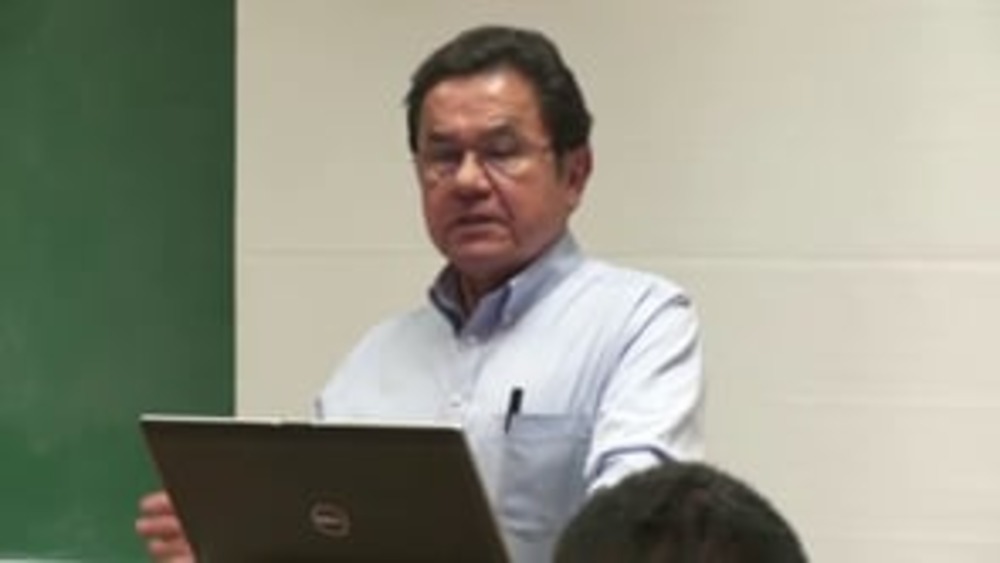
John Petoskey: The Central Role of Justice Systems in Native Nation Building
John Petoskey, citizen and longtime general counsel of the Grand Traverse Band of Ottawa and Chippewa Indians (GTB), discusses the key role that justice systems play in Native nation building, and provides an overview of how GTB's distinct history led it to develop a new constitution and system of…
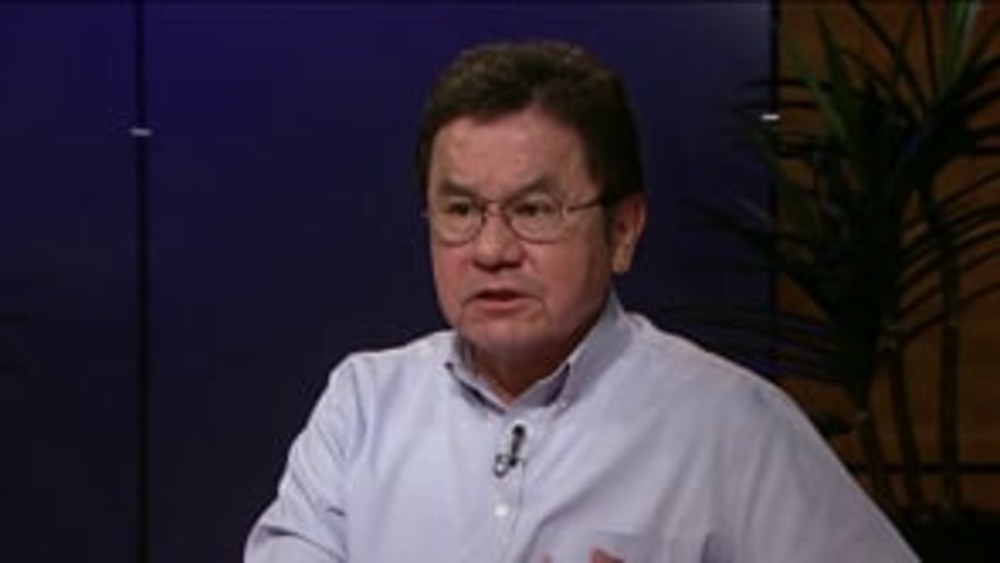
NNI Indigenous Leadership Fellow: John Petoskey (Part 2)
In the second of two interviews conducted in conjunction with his tenure as NNI Indigenous Leadership Fellow, John Petoskey, citizen and long-time General Counsel of the Grand Traverse Band of Ottawa and Chippewa Indians (GTB), discusses the legal doctrine of tribal sovereign immunity and…
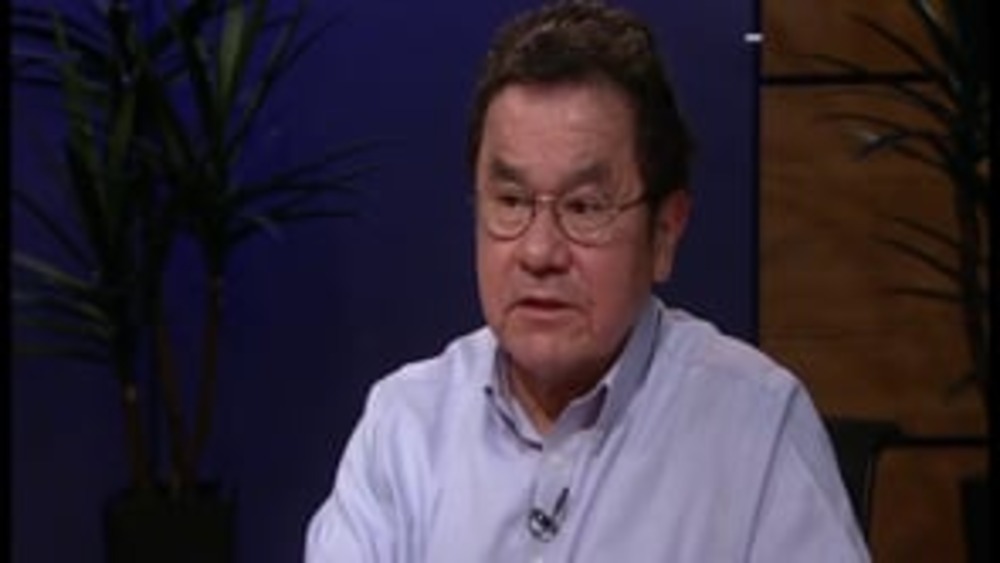
NNI Indigenous Leadership Fellow: John Petoskey (Part 1)
In the first of two interviews conducted in conjunction with his tenure as NNI Indigenous Leadership Fellow, John Petoskey, citizen and long-time General Counsel of the Grand Traverse Band of Ottawa and Chippewa Indians (GTB), discusses how GTB has worked and continues to work to build and maintain…

Honoring Nations: Using Partnerships to Achieve Governing Goals
Heather Kendall-Miller moderates this panel of Native leaders for a discussion on building and maintaining intergovernmental relationships.
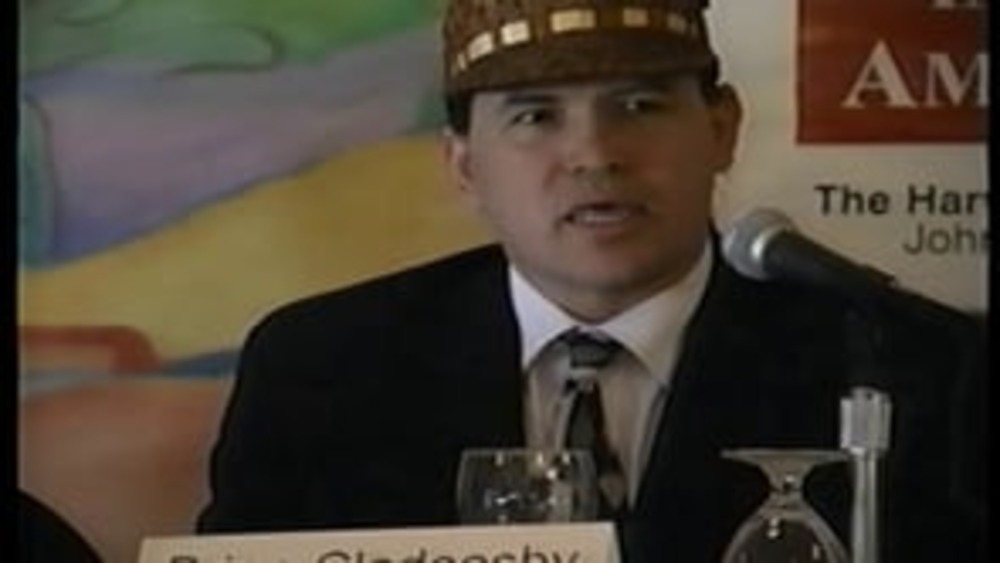
Honoring Nations: What is Good Tribal Governance and Why is it Important?: Tribal Leaders' Perspectives
Moderator Joseph P. Kalt facilitates a rich discussion by an impressive panel of Native nation leaders about the role leaders play in building and sustaining successful tribal programs.

Honoring Nations: Miriam Jorgensen: Achieving Good Governance: Cross-Cutting Themes
Miriam Jorgensen, Director of Research for the Native Nations Institute and the Harvard Project on American Indian Economic Development, shares the cross-cutting themes of good governance that exist among the Honoring Nations award-winning programs.
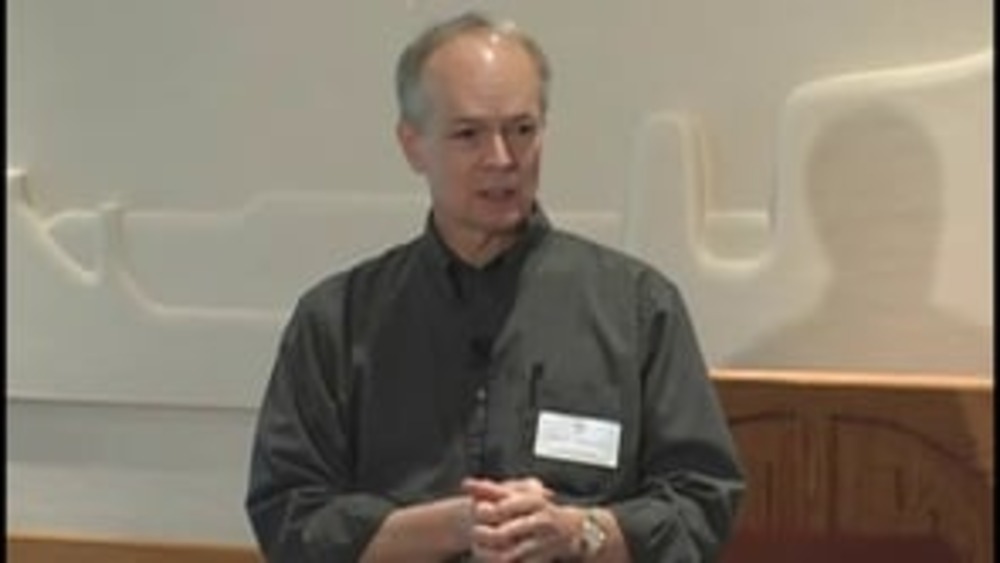
Stephen Cornell: Governance, Enterprises, and Rebuilding Native Economies
Harvard Project on American Indian Economic Development Co-Director Stephen Cornell discusses the two basic approaches Native nations typically take as they work to build and sustain nation-owned enterprises, and shares a number of examples from across Indian Country.
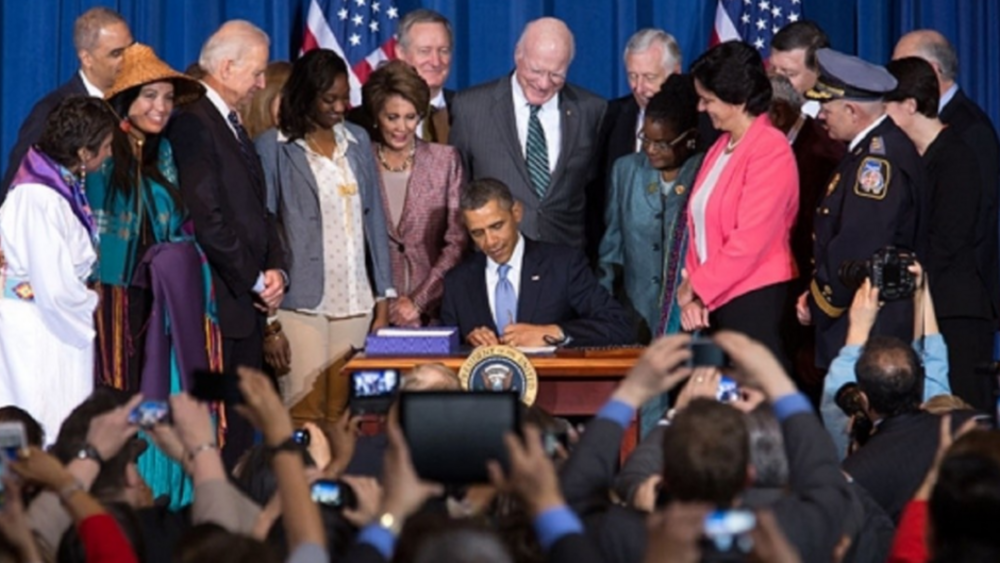
VAWA 2 Years Later
It’s been just over 2 years since Congress reauthorized the Violence Against Women Act. In February of last year, three tribes participated in a pilot project to exercise the special domestic violence criminal jurisdiction (SDVCJ) portion of the law. Under SDVCJ, some tribes can prosecute Natives…
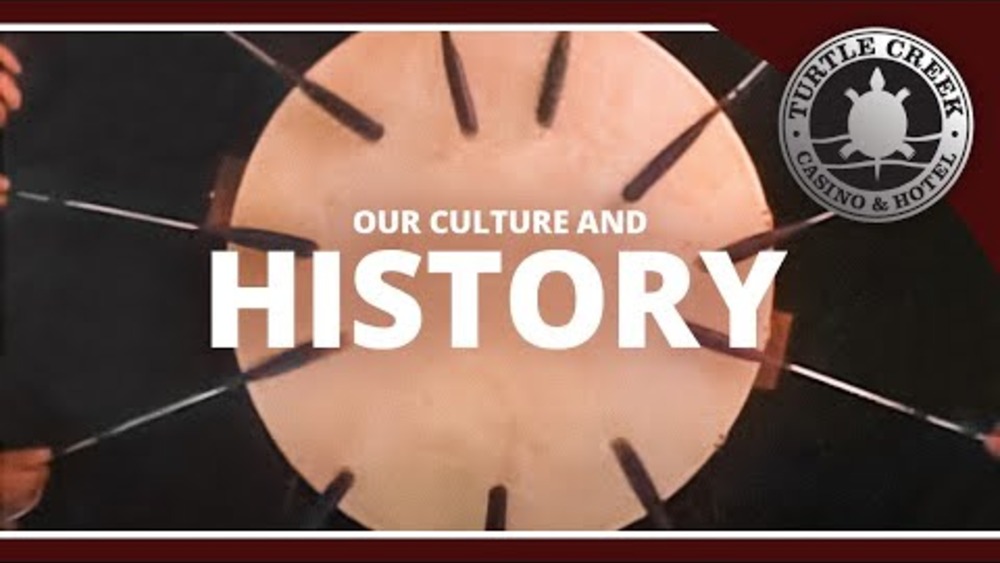
The Grand Traverse Band of Ottawa and Chippewa Indians
This video, produced by the Grand Traverse Band of Ottawa and Chippewa Indians, provides a brief overview of the nation's history, from its push to achieve federal recognition to its efforts to create a diversified, sustainable economy.
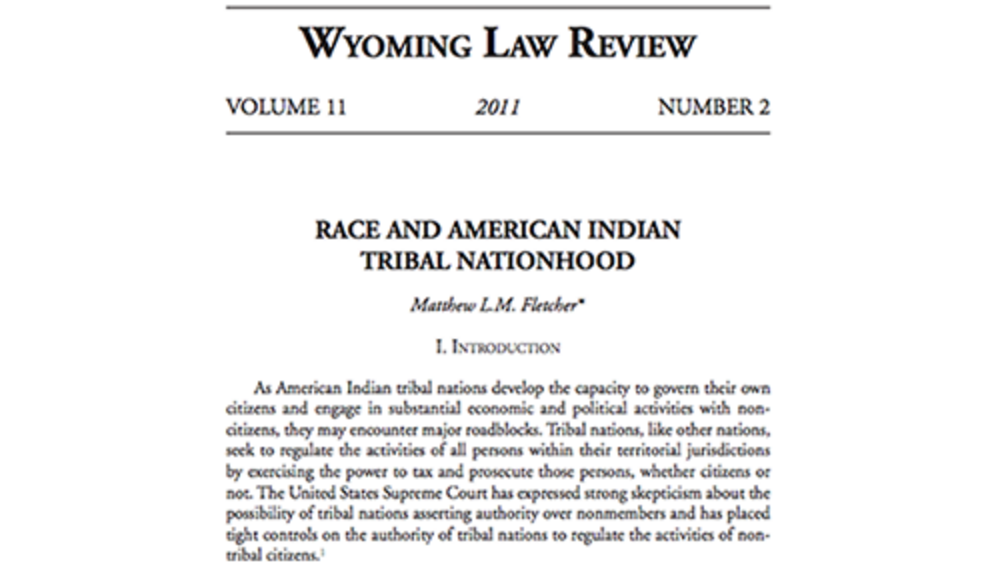
Race and American Indian Tribal Nationhood
This article bridges the gap between the perception and reality of American Indian tribal nation citizenship. The United States and federal Indian law encouraged, and in many instances mandated, Indian nations to adopt race-based tribal citizenship criteria. Even in the rare circumstance where an…
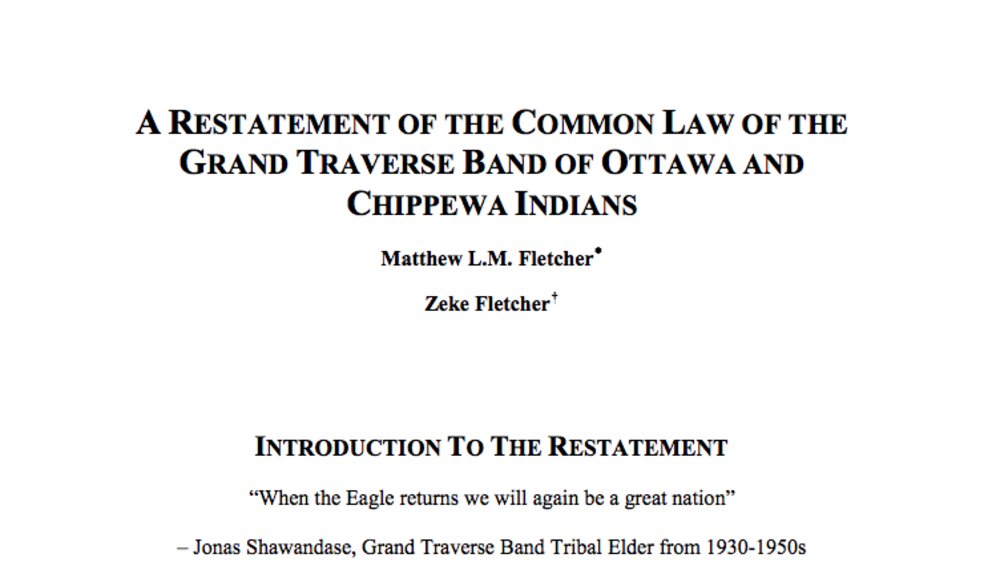
A Restatement of the Common Law of the Grand Traverse Band of Ottawa and Chippewa Indians
From 1872 until 1980 the United States government continually refused to recognize the sovereign status of the Grand Traverse Band of Ottawa and Chippewa Indians (GTB). For example, citizens of the Grand Traverse Band unsuccessfully attempted to regain this government-to-government relationship in…
